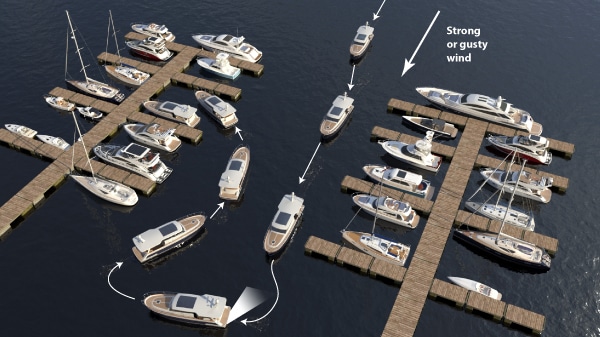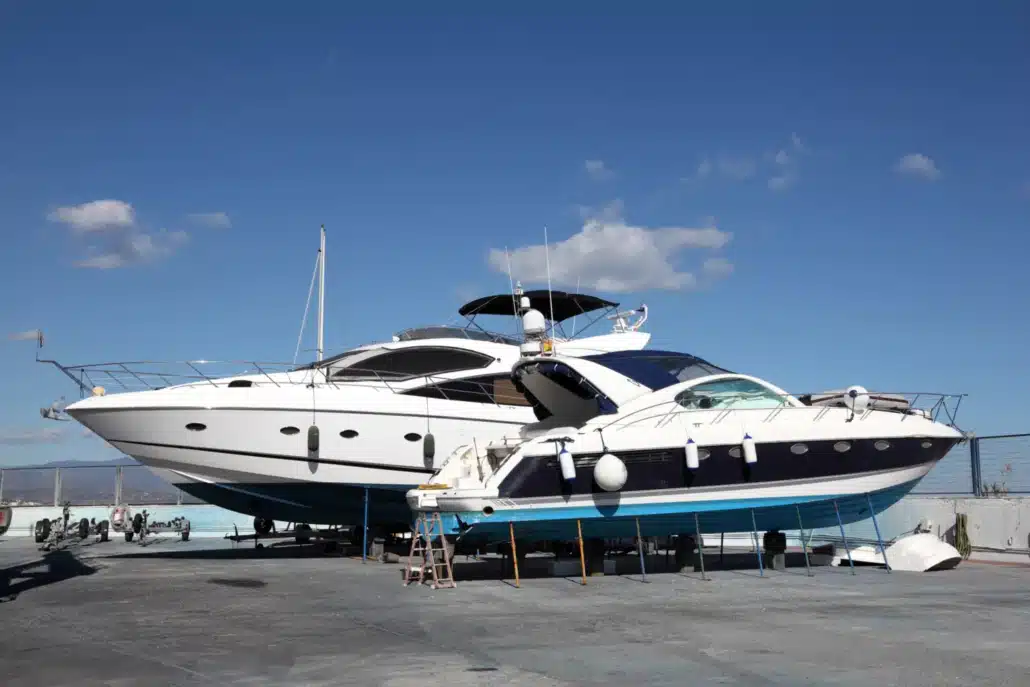Get started with powerboating with NauticEd’s FREE online Navigation Rules for Powerboats, or become a competent powerboater with the Skipper Large Powerboat Course – a comprehensive online powerboating course for beginner to intermediate powerboaters wanting to learn how to operate larger powerboats greater than 26ft. Or upgrade to the Bareboat Charter Master for Powerboats Bundle of online courses to also master multiday and near-coastal powerboating as well as charter powerboats on vacations.
11 Failures Of Buying A Used Boat
They say the two happiest days in a boat owner’s life are the day they buy it and the day they sell it. But we believe that mindset is all wrong. With the right purchase and proper care—like you would with your firstborn—a boat can provide years of adventure, excitement, and friendships that last a lifetime. After all, it’s hard not to be the favorite in the group when you’ve got a boat to relax on right?
While owning a boat offers incredible perks, it comes with one undeniable factor: financial responsibility. Purchasing a boat is a significant financial investment, and while new boats come with a hefty price tag, buying a used boat can drain your wallet if you make poor decisions. Boat ownership is a luxury, and it’s easy to get caught up in the dream of family adventures, thrilling activities, or impressing your colleagues. But if you want to avoid being stuck with a costly, unused boat sitting in your driveway, take note of these 11 essential tips before buying a used boat.
1. No Need To Stay Local
When buying a boat, it’s tempting to limit your search to local options, but with the vast shoreline of the U.S. and the marine industry spread across wide distances, staying local can limit your choices and cause you to miss out on fantastic deals just a few hundred miles away.
Pro Tip: There are numerous platforms available to help you find a real gem with proper research. However, don’t expect to find high-quality boats on a random Craigslist listing from just anyone. Instead, focus your search on reputable boat sales websites for better options.
Before traveling, ensure the boat is worth the trip. The key to a smart purchase is saving both time and money. Only visit vessels that have made it to your shortlist. This means you need to carefully select boats that interest you and map out their locations before heading out for inspections.
2. Say No To Open-Ended Prices
Determining your budget early in the process is crucial and will steer you toward a more focused and efficient search for a used boat. Without a clear limit, it’s easy to overpay or get taken advantage of. Set a firm budget and stick to it! Additionally, when you hire a broker (we’ll cover that later), having a clear budget will give them the right tools to help you find the perfect boat.
3. Know Your Needs
A common rookie mistake is not knowing exactly what type of boat you want. With so many styles to choose from—cruisers, dinghies, sailboats, and more—it’s important to think about how you’ll use it. Will it be for family outings or fishing trips with friends? Your planned activities should guide your choice. For obvious example, if fishing is your priority, a sailboat isn’t the right fit.
4. Work On Your Negotiation Skills
While it may not always be explicitly stated, it’s generally expected that you negotiate for a lower price when buying a boat. In fact, it’s not uncommon to see boats sell for half their asking price. Don’t be swayed if the seller mentions there’s a lot of interest—many potential buyers are just browsing without serious intent. Stand firm in negotiations, and you’ll often secure a much better deal.
Pro Tip: When discussing a lower price, avoid being overly critical (e.g., pointing out every flaw like poor varnish or outdated electronics). Boat owners often have emotional attachments tied to the memories they’ve made with their vessel. You might hear, “It’s a boat; what do you expect? It’s work.” Keep this in mind to maintain a respectful negotiation.
5. Not Doing Your Research
Research may feel like a hassle, but it’s as essential to the boat-buying process as water is to fish. It might seem obvious, but there’s a reason we stress it: not all boats are created equal, much like cars. For instance, which holds its value better—a Prius or a Ferrari? The same applies to boats. Certain brands are known for their craftsmanship and retain their value over time. Make sure you understand the pedigree of the boat you’re considering before diving into the market. Skimping on research could leave you vulnerable to sellers taking advantage of your lack of knowledge.
6. No Surveyor On Deck
Hiring a marine surveyor for your used boat purchase is essential. Think of a boat as a collection of independent systems—if even one fails, you could find yourself in serious trouble, both financially and on the water. Bringing in an expert surveyor who is familiar with the type of boat you’re considering is the best way to ensure no major issues are overlooked. Keep in mind that a surveyor will cost you around $1,000, so be sure you’re committed to the purchase before spending your hard-earned money.
7. Not Getting A Broker
We’ve heard boat brokers are compared to “used car salesmen with no morals.” The marine industry can indeed be cutthroat, especially since many new boat owners have little knowledge about boats. It’s no surprise—most people are drawn to boat ownership for the luxury it represents, but few understand the complexities involved. And we don’t blame you; becoming a marine expert isn’t easy.
This is why sellers in this industry can easily take advantage of inexperienced buyers. To protect yourself, it’s crucial to find a trustworthy broker who will represent your best interests. Think of your broker as your new best friend throughout the entire purchasing process.
8. Free Boat
So, you found an incredible deal on Craigslist—a boat that’s free! But let’s be honest: there’s a reason it’s free, and it’s probably not a good one. Something shady is likely going on beneath the surface, and it’s best to steer clear. You might think you can fix it up yourself, but problems in the boating world are notoriously expensive. What seemed like a clever way to save money could quickly lead to financial disaster due to the high cost of repairs and replacements.
The quickest way to lose money and ruin your boating experience is by taking on a “free” boat. In fact, this free boat might end up being the most expensive purchase you ever make.
Pro Tip: In boating, “BOAT” stands for “Bust Out Another Thousand.” Repairs and parts aren’t cheap, so be sure to factor in the high cost of any project you take on.
9. Project Boat
Here’s a very realistic scenario: You’ve found a boat at a fair price, but it’s been sitting neglected on the hard for the past five years, forgotten and abused. Now, let’s consider another situation: you have a clear vision of what needs to be done, and you can already picture yourself sipping a drink on your boat in some tropical paradise. Unfortunately, this rarely plays out as expected.
Boat repair and maintenance often require a high level of craftsmanship, and projects tend to pile up quickly. More often than not, you’ll find that the repairs take much longer than anticipated, and as the costs escalate, you’ll lose the enjoyment you initially envisioned. The dream of relaxing on your boat might get lost in the endless list of projects that stretch well beyond the budget you had set aside to hire workers to complete the job you started.
10. Custom Boat
Wow, someone took the time to build a custom-made boat—that must mean it’s crafted with care, and the previous owner cherished it like their own child, right? While custom boats often come with a higher level of craftsmanship and emotional attachment, they also tend to come with higher price tags. However, buying a used custom boat can be a serious risk for your wallet. The biggest concern is the lack of support. One-off, customized boats have unique internal systems tailored to the original owner’s preferences, which means you won’t easily find solutions for problems without a network of similar boats to rely on. This could leave you stranded when something goes wrong.
Pro Tip: When inspecting a used boat, the condition of the engine can be a clear indicator of the overall condition of the vessel. The engine is the heart of the boat and often the most expensive system. Is it rusted? Are there maintenance logs showing regular care? If the engine has been neglected, chances are the rest of the boat hasn’t been well-maintained either. When browsing used boats online, always check for engine photos or inquire about their absence.
11. Assuming ROI
A common misconception is that if all else fails, you can simply sell the boat and recoup your investment—or that buying a cheap project boat, putting in some hard work and sweat equity, will allow you to sell it for a profit. Believing this is a guaranteed way to lose money. A boat’s value is largely based on its pedigree, not how much you invest in it.
Let’s break it down: imagine you buy a boat listed for $100K. If you invest an additional $50K in repairs and upgrades, does that make the boat worth $150K? The answer is no. The boat’s value remains closer to $100K, due to its used status and lack of strong branding. No matter how much you put into it, you won’t necessarily see that investment reflected in the resale value.
Final
Buying a boat is more complex than it may seem. By avoiding these 11 common pitfalls when purchasing a used boat, you’ll be in a much better position both mentally and financially. Always remember to do thorough research, expand your search radius, hire a marine surveyor, and have a trusted broker on your side. The best advice we can offer is this: it’s smarter to spend more upfront on a quality boat that requires minimal work than to go for a “bargain” or “free” boat and face the costly consequences later.

Get started with powerboating with NauticEd’s FREE online Navigation Rules for Powerboats, or become a competent powerboater with the Skipper Large Powerboat Course – a comprehensive online powerboating course for beginner to intermediate powerboaters wanting to learn how to operate larger powerboats greater than 26ft. Or upgrade to the Bareboat Charter Master for Powerboats Bundle of online courses to also master multiday and near-coastal powerboating as well as charter powerboats on vacations.





